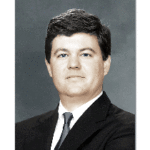The U.S. House of Representatives on Friday passed legislation that allows the National Flood Insurance Program (NFIP) to take on $9.7 billion in new debt to help meet claims related to Hurricane Sandy.
The following statements from fellows and policy advisors at The Heartland Institute may be used for attribution. For more comments, refer to the contact information below. To book a Heartland guest on your program, please contact Jim Lakely at [email protected] and 312/731-9364.
“Expanding the borrowing authority of the National Flood Insurance Program in the aftermath of Hurricane Sandy is an unfortunate but necessary step by Congress. While the NFIP is riddled with debt and in dire need of reform, the national flood program cannot afford to pay the claims of Sandy victims who currently have coverage and have paid their premiums, and these claims cannot go unpaid.
“Any extension of the program’s borrowing authority cannot and should not be construed as support for how the NFIP is currently run, but a lesson on how the program is ill-suited to handle major natural disasters. Once the claims from this crisis are paid, Congress needs to consider real reform that requires the NFIP to charge rates based on real-world risk while increasing the role of the private sector in providing flood coverage.”
Matthew Glans
Senior Policy Analyst
The Heartland Institute
[email protected]
312/377-4000
“The government is obliged to pay the current Hurricane Sandy claims, but it should exit the flood insurance business in the future. It’s unfair to force all Americans to subsidize the lifestyles of those who choose to construct their homes on risky property.”
Maureen Martin
Senior Fellow for Legal Affairs
The Heartland Institute
[email protected]
“We have before us an example of the political dynamics that have created our fiscal disorder and approaching meltdown. First there is a crisis and ’emergency.’ Of course, the emergency occurred more than a month ago. Then various federal, state, and local politicians want to assure the American people that the government is ‘doing something.’
“Next, we demonize anyone who argues for careful spending and accountability. If you run a Google search on Paul Ryan and Hurricane Sandy, the typical liberal demonization pops up. In short: ‘Paul Ryan and 66 other House Republicans tried to rip-off Hurricane Sandy victims by voting to not pay their approved flood insurance claims.’
“Rep. Paul Ryan and 66 Republicans are right and courageous. Relief should be drawn from current budgets or new funding should be appropriated. Appropriations and budgeting systems are in place to provide oversight and discipline.
“Turning to the capital markets and additional borrowing for one of the many government agencies that are providing aid is an end-run around good governance systems. Does anyone else realize that using the capital markets to avoid congressional oversight and an appropriations process was structural error that caused and continues the Great Recession?”
Christine P. Ries
Professor of Economics
Georgia Institute of Technology
[email protected]
“The argument for federal disaster insurance was that only the federal government can price the catastrophic risk on an actuarially fair basis. Supposedly, this was or is because the liquidation of the reserves needed to make good on the claims resulting from disasters would be at adverse prices.
“Now comes a disaster that catches the federal government short of funds, except insofar as the federal government can, with the support of the Federal Reserve, issue unlimited amounts of debt. Therefore, to make good on its liability, the federal government finds that it has to authorize borrowing by its agency administering its disaster insurance program.
“The recourse to agency debt is certainly bothersome insofar as it exacerbates the risk of inflation and undermines the constitutional arrangement of checks and balances. But, the real problem is not that it’s the straw that breaks the camel’s back, but all the straws that are breaking the camel’s back.
“Furthermore, the premise that only the federal government can price catastrophic risk on an actuarially fair basis is false. Today, with property insurers being global in scope, with well-developed markets in re-insurance, and with the developing markets in contingent claims, the private insurance industry can and does rather routinely make good on disaster claims well in excess of the payments made by the federal government.”
Clifford F. Thies
Eldon R. Lindsey Chair of Free Enterprise
Professor of Economics and Finance
Shenandoah University
[email protected]
“Unlike the national debt, at least this is debt that can be paid. However, the National Flood Insurance Program needs to be abandoned as soon as possible. It encourages people to build in flood-prone areas without the necessary precautions such as elevation or raising structures off the ground. Thousands of people would not have been in harm’s way of Hurricane Sandy if they had not built homes on the ground in floodplains.”
Mark Thornton
Senior Fellow and Resident Faculty Member
Ludwig von Mises Institute
[email protected]
“It would be a huge improvement from a policy perspective if basic, fundamental insurance principles were considered in the management of NFIP. In well-functioning insurance markets, policyholders are charged risk-based premiums on an ex ante, or before-the-fact, basis, with the expectation that claims will be paid from the reserves which are built up over time from underwriting and investment-related profits.
“While catastrophe risks such as floods, earthquakes, and windstorms are somewhat more difficult to manage, insurers typically include additional risk loadings in the premiums charged and also purchase reinsurance in their efforts to manage such risks.
“In contrast, current NFIP risk management policy seems incoherent, with major financing decisions being dictated in a completely ad hoc fashion by whatever political contingencies happen to arise at any random moment of time.”
James R. Garven
Frank S. Groner Memorial Chair of Finance
Baylor University
[email protected]
The Heartland Institute is a 29-year-old national nonprofit organization headquartered in Chicago, Illinois. Its mission is to discover, develop, and promote free-market solutions to social and economic problems. For more information, visit our Web site or call 312/377-4000.








